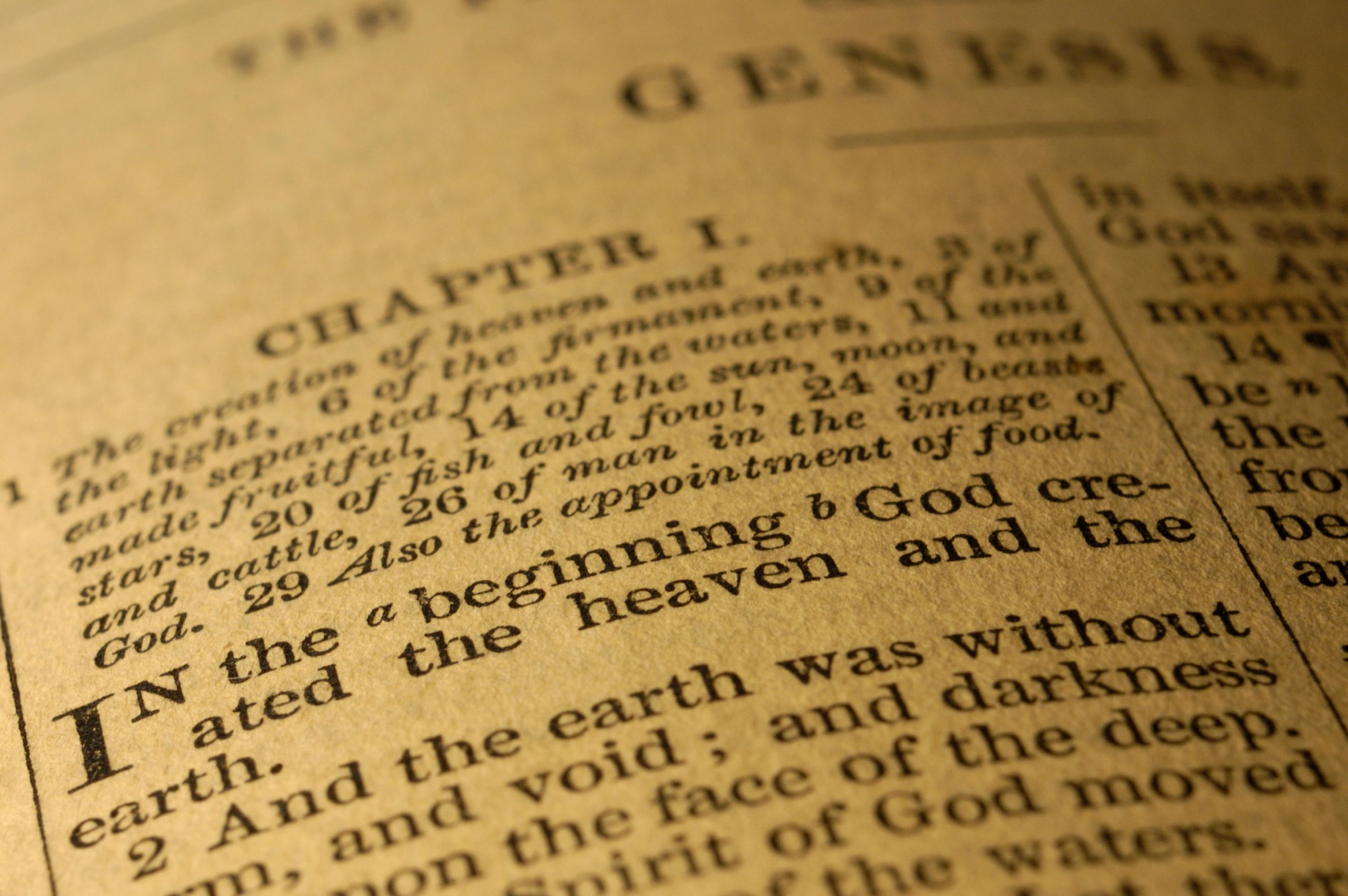The book of Ruth began with a reminder of the empty place in the lives of God’s people. They had no king, and therefore everyone was doing what seemed right in their own eyes. God’s people needed a leader, a king, who would lead them in the worship of God, who would defeat their enemies, who would rule in justice and righteousness. And through this union between Boaz and Ruth, through all of the difficult circumstances that brought them together, all of the emptiness and angst that seemed to Naomi to be signs of God’s hand against her, God was actually at work providing what his people needed most—a king.

This king would establish the throne on which an even greater king, his greater son, would one day sit. One day, a son of David would be born in Bethlehem. He, too, would be a redeemer, a rescuer. He, too, would be willing to pay the cost to redeem not only those from the family but also those, like Ruth, who were outside the family. He would redeem people like you and me—people who were once strangers and foreigners but who have been made citizens along with all of God’s holy people, members of God’s family (see Ephesians 2:19).
He left the far country of heaven, not to come to a land of plenty or a home where he would be welcomed. “He came to his own people, and even they rejected him” (John 1:11). On the cross, Jesus, unlike Naomi, really did experience having the hand of God turned against him. The Lord really did cause him to suffer. Isaiah writes, “It was the Lord’s good plan to crush him and cause him grief” (53:10). There, on the cross, Jesus was purchasing our redemption. And as we come to him, asking to be covered by him and joined to him, we find that “from his fullness we have all received, grace upon grace” (John 1:16, esv).
So this story leads us to ask ourselves some all-important questions: Have I ever turned away from the things and places and people I thought would provide me with life but have only left me empty? Have I ever truly turned toward the only one who can fill my life with his grace and goodness? Have I ever come and put myself at the feet of the Redeemer and asked him to cover me, care for me, bind himself to me, provide for me, protect me?

When we’ve been redeemed, welcomed into the family, and provided for, we may still experience some emptiness, but we know it is not because God has turned against us. Rather, we can endure some emptiness, confident that our Redeemer will not ultimately fail us, confident that “if God is for us, who can ever be against us? Since he did not spare even his own Son but gave him up for us all, won’t he also give us everything else?” (Romans 8:31-32).
My friend, if you are feeling tempted to have your needs met somewhere, anywhere away from God—somewhere forbidden, somewhere that promises life but only delivers death—I want to say to you, as I would have wanted to say to Elimelech and his little family as they packed their bags for Moab, “Don’t do it! Don’t go! Cry out to God in repentance! Cry out to God to send relief ! Put your trust in God to save you and supply you with what you need. Don’t seek out some solution apart from God, away from where he has promised to bless his people—which is in Christ alone.” What may seem like a reasonable step for self-preservation will prove to provide no lasting preservation.
When all you can see are the empty places, put your confident hope in what you can’t see. Put your hope in the God who is for you. God has not raised his fist against you; instead, God’s hand is at work in your life. See that even the hardest providences of life come to us through our Redeemer’s nail-scarred hands. He’s allowing this emptiness in your life, seeking to draw you back to the place where he intends to bless you beyond what you can imagine. You just can’t see it at this point in your story. Trust him to the end. He is guiding the story of your life toward restoration, toward redemption, toward resurrection.

Know that just as Boaz was drawn down into Ruth and Naomi’s need, your Redeemer is drawn down into your need. Your desperate need is not evidence that he is against you but rather an opportunity for him to demonstrate the ways in which he is for you. He sees below the surface desires into your deeper and more significant needs. He may not fulfill every desire you see as a need from your limited perspective, but he is committed to meeting your true and deepest needs fully and forever.
Whatever it is that has carved out a huge cistern in your soul, God wants to fill your emptiness with his grace and kindness. Your Redeemer longs to take you under his wing and cover you with his robe, to protect you and provide for you. He has done what is necessary under the law to redeem you from your desperate situation and has paid the price required with his own blood. He will take you into his home. He will satisfy your hunger with himself because he is the Bread of Life. He will heal your heart, which has been broken by the sorrows and losses inflicted on it by life in this world. He will be kind to you. He will love you. He will share with you his own inheritance in the heavenly land. He will fill your future with all of the royal privileges of being in the family of Jesus Christ, the Son of David.
Taken from God Does His Best Work with Empty by Nancy Guthrie. Copyright © 2020. Used by permission of Tyndale House Publishers. All rights reserved. Represented by Tyndale House Publishers, Inc.

It’s amazing how heavy the weight of emptiness can feel, how much room it can take up in our souls, how much pain can be caused by something that isn’t even there. But while we may see the emptiness of our lives as our greatest problem, that’s not how God sees it. When God looks into the empty places of our lives, He sees His greatest opportunity. God does His best work in the emptiness of our . . .
- Insatiable craving for things that don’t satisfy
- Relational disappointments and loneliness
- Frustrated search for purpose and meaning
- Relentless desire for comfort and security
- Ongoing struggle to live with loss and unfulfilled dreams
Join Nancy Guthrie in discovering why emptiness has never been, and never will be, a problem to God. As Nancy pulls back the curtain on God’s work to fill up emptiness as revealed throughout the Bible, you’ll experience page after page of grace and hope that your emptiness can and will be filled. You’ll begin to see that God really does do His best work with empty—as he fills it with Himself.














What do you think?